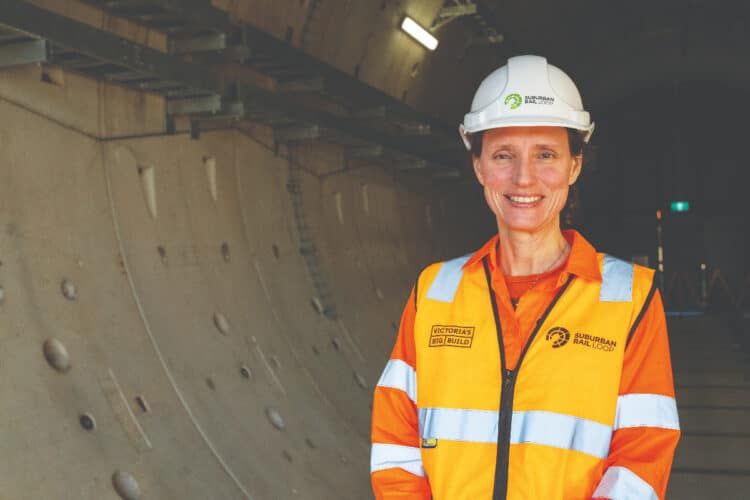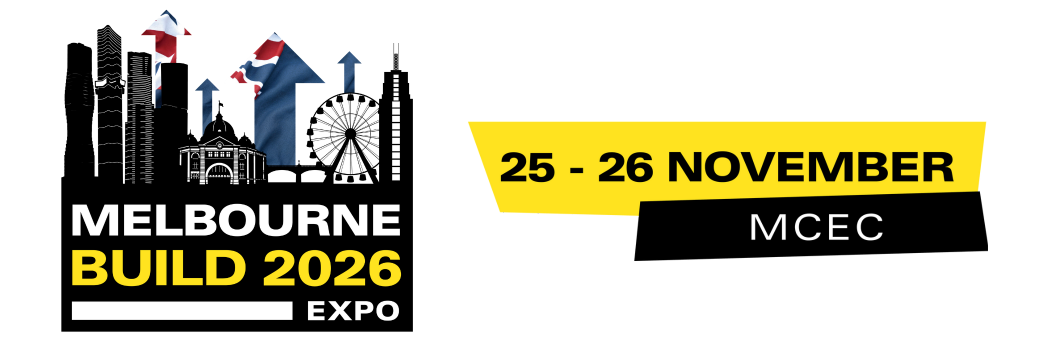Victoria's Big Infrastructure Project Embraces All-Female Tunnelling Team for Suburban Rail Loop
)
The Victorian Government is set to create a historic milestone by enlisting the inaugural all-female tunnel boring machine (TBM) crew for the construction of the Suburban Rail Loop (SRL).
This landmark transport and urban planning venture will introduce a pioneering team led by Isolde Piet, the world's first female TBM pilot and Construction Manager for SRL's East Tunnels South. Piet's journey in the construction sector began 26 years ago as a civil engineer in the Netherlands.
Reflecting on her extensive experience in various high-value projects across multiple countries, Piet eagerly anticipates guiding this group of women to forge their own paths. “I hope that we leave a legacy at the end of this project, where they can transition into other projects that will have a lasting legacy on their careers,” Piet expressed.
The team is poised to accommodate around 25 proficient positions, encompassing roles such as TBM operators, gantry and segment crane operators, grouters, and support personnel. They will be amongst eight crews managing four TBMs to excavate the SRL East's twin tunnels connecting Melbourne suburbs Cheltenham and Glen Waverley.
The SRL, a 90-kilometre circular rail line, is envisioned to revolutionise Melbourne's development, enhancing travel efficiency for over 80% of Melburnians by eliminating more than 600,000 cars from the roads daily.
With the TBMs set to commence operations in 2026, Piet emphasised the importance of a meticulous recruitment process to select the most suitable candidates for these demanding roles.
“It will be a very physical job, so we need to look for the right people for the right roles, because above anything else we want them to succeed,” Piet said.
“We want to give them the opportunity to present themselves, and the best way to get in to the team is to show your drive for the industry.”
Her guidance for women aiming to enter the field is to prioritise staying faithful to their personal interests, as this authenticity will be evident to recruiters.
“When applying for any job, it needs to be something that you want to be doing on a day-to-day basis.
“The fact that it’s an industry that doesn’t have a lot of women in it should not be a barrier for women. I believe that females are just as capable as males in that space, they should just go for it and don’t think too much on the ‘what if’ scenarios.”
Piet highlighted that regardless of gender, everybody in the TBM crew will have to prove themselves equally due to the demanding nature of roles.
“Contenders are always going to have to prove themselves and demonstrate they can do the role, I wouldn’t say it is different for males and females,” she said.
“However, I would say there is some bias within the industry with the existing crew, where you do feel like you have something to prove. Because ultimately, they do see you as different.
“But that is something that will change over time.”
The all-female TBM team is a necessary step forward in diversifying the construction industry, which Piet said would help to accelerate change.
“When I started 26 years ago, the balance was the same as it is today, which proves that the process is moving very slowly,” she said.
“Developing this concept is fast-tracking the diversification process because it will create a platform for females to enter the industry.
“If you want to hire for experience, there is not much out there. By giving women a platform to succeed, we’re also diversifying and strengthening the employment pool.”
The team will focus on on-the-job training and equipping women with transferrable skills that they can use throughout the industry.
Piet remarked this would create a group of females with differing levels of experience and seniority who will be able to walk away at the end of the project to continue in other projects.
“If we get this group out there, we hope that moving forward the process of getting a better balance will move faster,” she said.
“This experience should take away the barrier for others to enter the industry and show that it is actually better for everyone to have a mixed gender workforce.”
The road to TBM Pilot
 While leading the all-female TBM crew will mark a new milestone for Piet, her experience with TBMs is not unfamiliar territory.
While leading the all-female TBM crew will mark a new milestone for Piet, her experience with TBMs is not unfamiliar territory.
Throughout her career, Piet has held various roles such as Junior Engineer, Senior Engineer, Project Manager, Construction Manager, and TBM Pilot. She recently contributed to preliminary works for the North East Link project in Melbourne, where she engaged with micro TBMs for pipe jacking and trenching. Her civil engineering expertise extends across different countries, including the Netherlands and Turkey.
Piet's interest in civil engineering sparked during her high school days in Holland. The prospect of constructing enduring structures that shape the environment for decades to come resonated with her. “The whole concept of building big things that are going to be there for the next 50 or 100 years or more and having the ability to improve your living environment was appealing to me,” she said.
A pivotal moment during a study trip to Japan exposed Piet to underground construction sites for the first time, reinforcing her passion for the industry.
She reflected, "Before that, I didn't really have a concept of what tunnelling would look like." Witnessing diverse teams collaborate towards a common goal of building significant structures captivated her.
Since then, Piet has actively pursued opportunities that allow her to engage in such projects. Her work in Holland encompassed a range of sites involving conventional cut and cover techniques, TBM tunnelling, and precast segments for tunnelling.
Securing her first role as a TBM pilot for the high-speed rail tunnel in Holland was a testament to Piet's persistence, courage, and expertise in the field.
“I was already working on the project as a site engineer where I worked on the launch shaft,” she said.
“I then transitioned to an office-based role for the tunnelling team, where I gained experience by learning on the ground for close to a year.
“This gives a person an understanding of how the machines work, as well as the intrinsic knowledge about all the concepts to build a tunnel.”
It was at this stage where Piet had two options for her next move – she could either be a shift boss or TBM pilot.
“I saw other engineers moving around and going on the ground and I was still stuck in the office,” she said.
“It took a bit of talking and convincing –I pushed really hard at that point to show that I really wanted to do it.”
Although the managers displayed some hesitance with her being the only female on the ground, reassurance from Piet landed her the role to be trained as a pilot.
“We discussed potential barriers and how we would address them, once that was sorted, someone trained me for a few weeks and then I was thrown into the deep end by myself,” she said.
Although this transitional period displayed its challenges and was a steep learning curve, Piet highlighted it was the best experience. “I quickly learnt the importance of being on a team who works together,” she remarked. “You are going to hit roadblocks, you’re going to get into some issues, you have to sort them out together.”
Piet admitted the first couple of weeks were “a bit scary” and she was definitely feeling the pressure.
“I felt like I was under a magnifying glass, and everyone was expecting me to stuff up.
“I felt like I had to work three times as hard to get the same amount of recognition at that point.
“But, further down the line everybody accepted that I was there and that I was doing a good job at it, and they were happy.”
Source: Railexpress
Melbourne Build is the leading and largest construction trade show for Melbourne and Victoria, taking place October 22nd & 23rd 2025 at MCEC. Featuring two jam-packed days of knowledge-sharing, 450+ expert speakers across 7 conference stages, a 300+ booth exhibition, Meet the Buyers, business networking, live music, entertainment and so much more!

